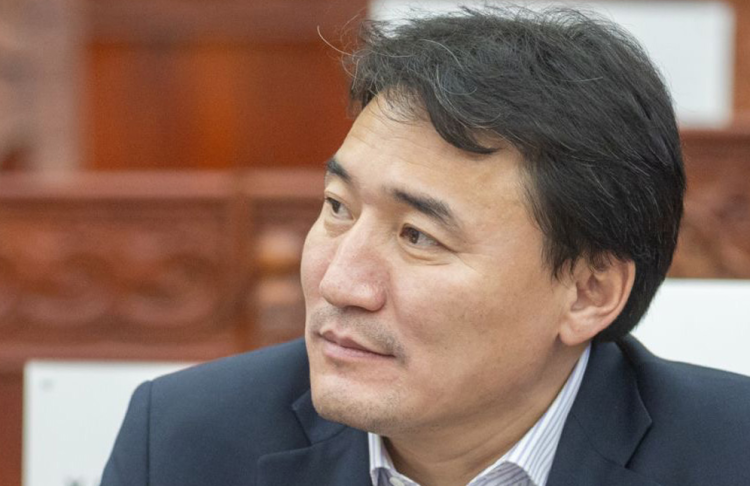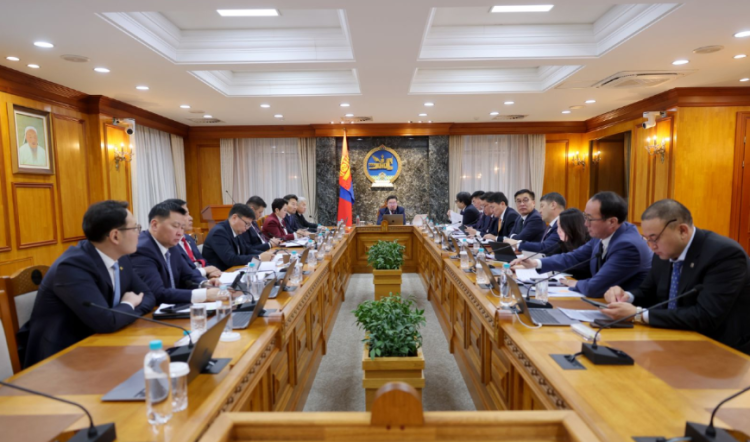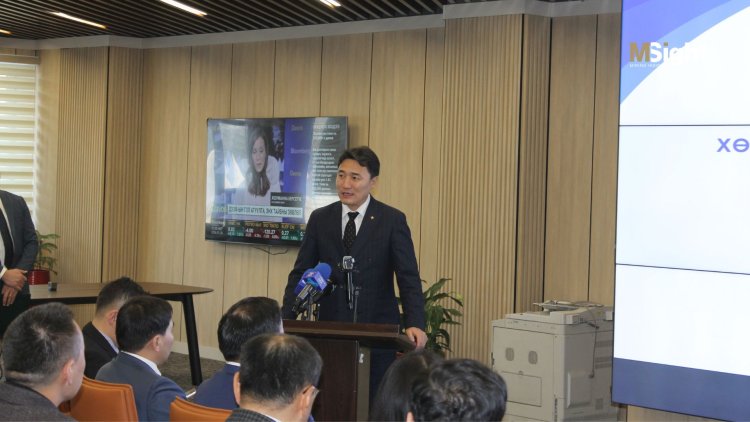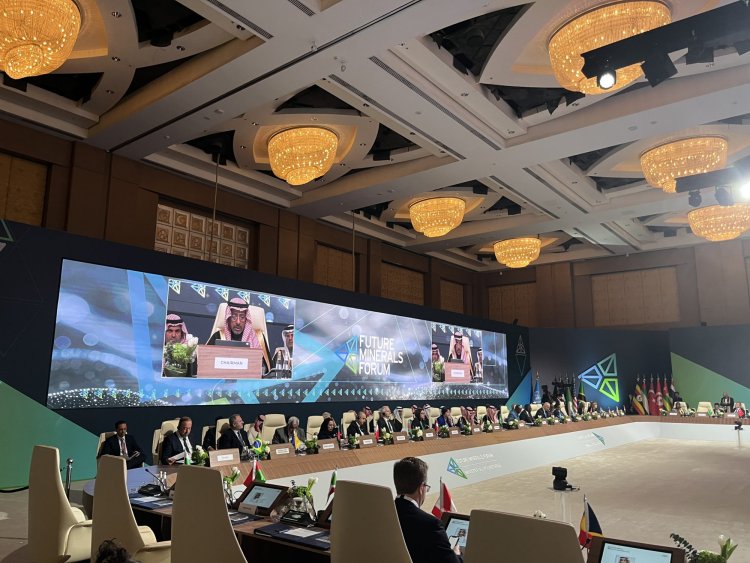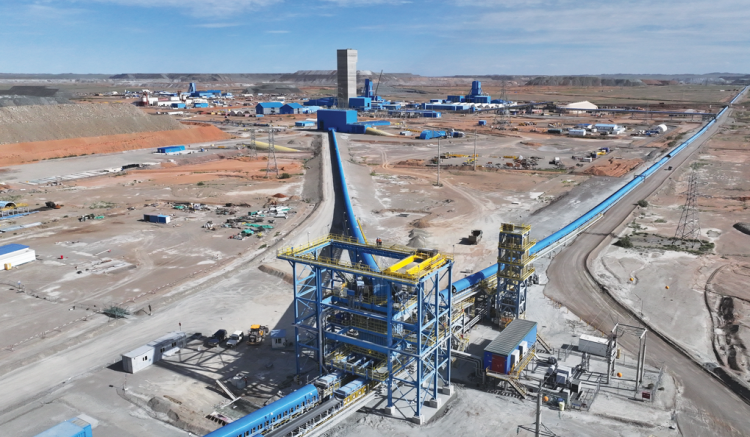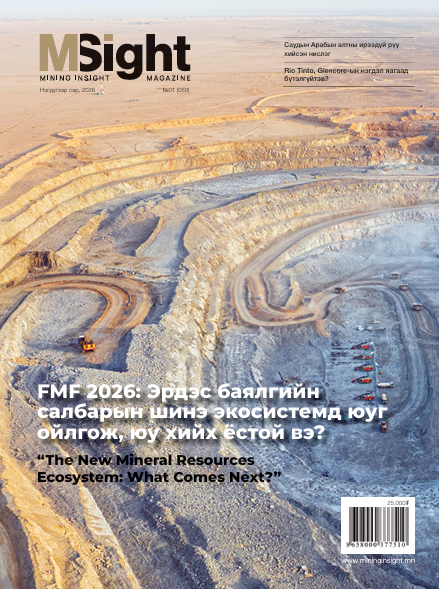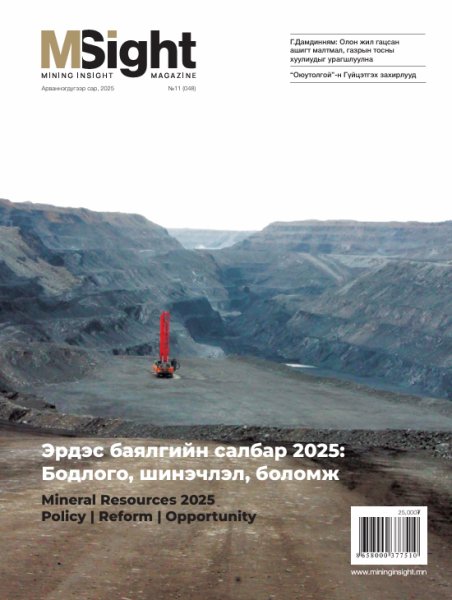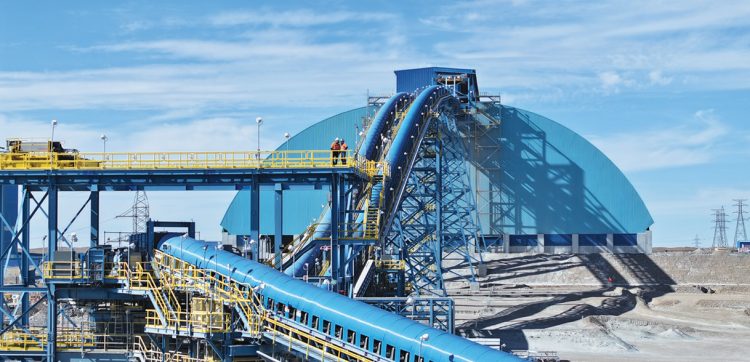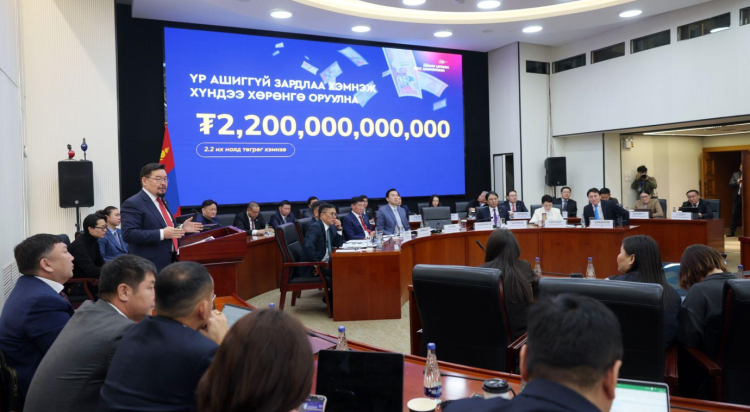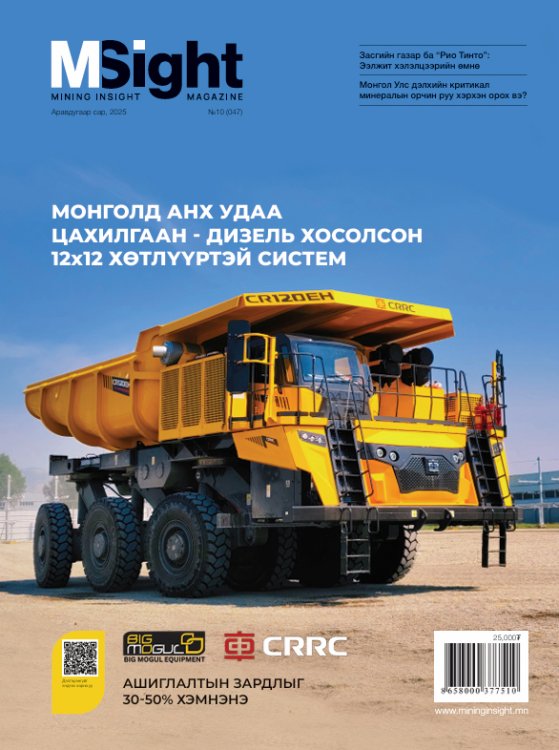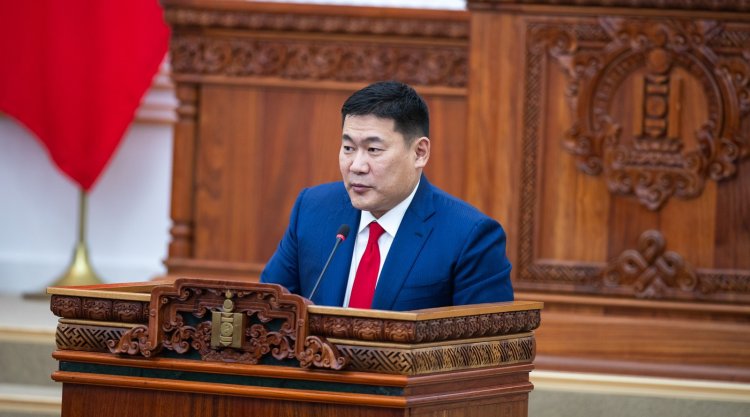 On October 4, Prime Minister of Mongolia Oyun-Erdene Luvsannamsrai presented the draft 2025 state budget and addressed the Parliament. Below is the full text of his address.
On October 4, Prime Minister of Mongolia Oyun-Erdene Luvsannamsrai presented the draft 2025 state budget and addressed the Parliament. Below is the full text of his address.
Fellow Mongolians,
Honorable Chairman and esteemed Members of the Parliament,
The people of Mongolia have embraced comprehensive legal reforms to establish a parliament with 126 representatives through a mixed electoral system. This marks the end of a 30-year transitional period and ushers in a new era of parliamentary governance, representing a second wave of mature democracy. Research indicates that the people of Mongolia are looking for representatives who can tackle the pressing developmental challenges facing our nation, rather than merely catering to electoral constituencies.
With high expectations come significant responsibilities. Should this 126-member parliament and the current government fail to meet the aspirations of our people, we must acknowledge that the risks to democratic parliamentary rule have been accumulating like a storm cloud for the past 30 years. Addressing challenges and achieving success necessitate diligent effort and commitment; however, a single misstep can jeopardize our progress. We can see and learn from many examples, such as the credit ratings that took over a decade to improve.
To avert such misjudgments, we have formed a coalition government, that is now submitting its inaugural budget to Parliament, grounded in the “DETERMINATION TO ACCELERATE DEVELOPMENT” agreement signed among the political parties in the cabinet.
The 2025 budget represents our first financial plan aligned with Mongolia’s regional development strategy, crucial for guiding our nation's trajectory over the next four years.
Honorable Chairman and esteemed Members of Parliament,
The state budget serves not only as a projection of income and expenditure but also as a strategic framework for enhancing our economic capacity, gross domestic product, and gross national income. The economic development of any country is measured by its gross domestic product; therefore, we will continue to evaluate our key development indicators against this international standard as a benchmark.
After remaining stagnant at 4,000 USD for over a decade, Mongolia’s GDP per capita surpassed 6,000 USD in 2023, driven by improvements in port access, the identification of a hidden economy in the mineral sector, and growth in tourism This year’s projections estimate a GDP of approximately 79.2 trillion MNT, with GDP per capita anticipated to reach around USD 6,800. While global economic growth is forecasted at approximately 3.3 percent in 2025, our region is anticipated to grow by 5.1 percent.
We must acknowledge the increasingly fragmented global landscape and rapidly evolving geopolitics present significant risks to our economy. However, following the stabilization of our country’s credit rating at "B+", the upgrade of our gross national income per capita into an above-average category according to World Bank classifications, the establishment of the coalition government, and the announcement of large-scale development initiatives, these institutions revised their estimates to suggest growth rates of 6 percent or more. They are closely monitoring our budget discussions; in essence, investors are watching us.
We must remain vigilant to the risks. We anticipate that if at least 5 of the 14 mega projects proposed by the coalition government commence in the 2025 budget year, GDP could reach 95 trillion MNT by the end of 2025. Furthermore, if we successfully launch all 14 mega projects by 2026, we expect our GDP to reach 132.3 trillion MNT by 2028, pushing our GDP per capita to the milestone of 10,000 USD.
Mongolia’s GDP per capita has never before reached 10,000 USD. However, the following positive transformations have occurred in countries that have achieved this milestone:
· Credit ratings improve by 1-2 grades, resulting in interest rates reducing by up to 30 percent.
· Foreign investment increases by 1.5 to 3 times, helping to address significant infrastructure challenges.
· Investment and productivity in science and technology increases, contributing to the diversification of the economy.
· Skilled professionals return home and qualified foreign experts begin working in the country.
· The 60 percent increase in average salaries reduces poverty levels, while higher salaries for civil servants enhance governmental productivity.
· Quality of life improves, with longer life expectancies resulting from advancements in education and health services.
There is no alternative pathway to development; we must steadily expand our economy and elevate our GDP per capita to surpass USD 10,000 as swiftly as possible.
In this era of rapid advancements in artificial intelligence, which fundamentally transforms human existence,
we Mongolians must embrace technological progress, look towards the future, and align ourselves with modern trends.
In this era of rapid advancements in artificial intelligence, which is transforming our lives at an astonishing pace, we Mongolians must embrace development rather than chase it. We must envision the future instead of clinging to the past and strive for swift progress in harmony with the evolving landscape.
The government is preparing to present the following 14 mega projects to Parliament in 2025 for discussion and decision-making:
· The completion of the Gashuunsukhait-Gantsmod cross-border connection, which has been stalled for 18 years, will double the port’s access capacity, increase coal transportation by 40 million tons, and double export revenues.
· The construction of the 90 MW Erdeneburen hydroelectric power plant will fully satisfy the electricity needs of the western region by 2027.
· The joint uranium project between Mongolia and France, active in exploration for 26 years, has the potential to generate 4.5 billion USD in tax revenue for the state budget.
· The construction of the Orkhon-Ongi and Kherlen-Toono water pipelines, aligned with climate change initiatives, will supply water resources for the population, livestock, industry, and mining in the Gobi region. It will also restore the Red Lake and rejuvenate the surrounding ecosystem and biodiversity, which are essential for combating desertification. Moreover, other major projects cannot advance without sufficient irrigation in the Gobi region.
· Progress on the Tavantolgoi 450 MW thermal power plant project, which has been under negotiation for the past decade, will ensure a domestic electricity supply for the Oyutolgoi and Tavantolgoi deposits, as well as other strategically important mining projects in the south.
· The National Satellite Project will provide direct internet access throughout Mongolia, enabling 250,000 herder families to benefit from services like E-Mongolia, E-School, and E-Hospital, thus laying the groundwork for advancements in artificial intelligence and technology.
· Additionally, a comprehensive package of projects in the industrial sector, along with renewable energy and infrastructure initiatives in the capital city, will be presented to Parliament for decision-making.
By implementing at least five of these 14 mega projects, Mongolia can effectively eliminate balance of payments risks and strengthen its foreign exchange reserves in fiscal year 2025. Additionally, the government plans to enhance transparency in mineral exploration and licensing, support the processing industry through favorable taxation, and prioritize the agriculture, tourism, and energy sectors. The costs associated with economic diversification have been included in the 2025 budget.
To bolster investor confidence, support the private sector, and enhance the business environment and national productivity, the government plans to develop a series of legal reforms during the 2025 budget year and present them to the Parliament. These reforms will focus on:
• Improvements in the investment and business environment
• Reforms in taxation and budget expenditures
• Governance enhancements for the National Sovereign Wealth Fund and state-owned enterprises
• Initiatives for the national housing system and savings fund
• Strategies for regional development
• Urban development and city governance reforms for Ulaanbaatar
• Reforms in the energy sector
• Initiatives for a green economy and transition
• Digital transformation leveraging big data and artificial intelligence
• Legal reforms in civil service
• Enhancements in national resilience and risk management
• Improvements in the utilization and economic efficiency of mining licenses
As part of these important legal reforms, working groups have been established under the directive of the Speaker of Parliament. The government extends its gratitude to Speaker Amarbayasgalan Dashzeveg and the members of the working group for their valuable collaboration.
Honorable Chairman and esteemed Members of the Parliament,
To achieve our shared objectives, we must direct the 2025 budget toward infrastructure projects that will expand our economic base, moving away from the traditional method of equal budget distribution. Historically, Mongolia has initiated an average of 450-500 new projects annually through state budget investments. However, the 2025 budget will prioritize financing of 38 new infrastructure projects that align with this strategic policy.
Over 21 years, we have constructed 7,000 km of roads as part of the Millennium Road initiative. Under the Regional Development Policy, we plan to build an additional 4,440 km of roads over the next four years to connect provincial centers and border ports based on economic priorities. To support this effort, the 2025 budget allocates funding for the construction of 2,100 km of new roads.
To suppo
rt diversified regional and sub-regional development, the budget allocates resources for the creation of 1,650 MW of new energy sources and a transition to clean energy. It also addresses the financial needs for completing 602 social sector buildings that have faced construction delays.
In 2025, we aim to fully operationalize 90 schools, 62 kindergartens, 31 hospitals, 22 dormitories, 60 cultural and sports facilities, and 18 family and social security centers. This will increase school capacity by 40,610 seats and kindergarten capacity by 9,540 beds.
The government will implement measures to ensure that basic social services are of high quality and accessible to all citizens, particularly vulnerable groups. In this context, starting from January next year, old-age pensions, welfare pensions, and civil servants’ salaries will increase by six percent to align with inflation rate.
Recognizing that housing is a crucial component of citizens' well-being, the government plans to introduce national housing reforms in collaboration with the National Sovereign Wealth Fund’s Savings Fund. This initiative will allocate 1 trillion MNT for subsidized housing mortgage loans, benefiting 13,000 citizens.
From 1992 to 2021, a total of 11.5 trillion MNT was invested in the capital city of Ulaanbaatar. However, under the Regional Development Reform framework, we must increase that investment threefold by 2028.
The government plans to present the capital's general development plan through 2040 to Parliament within this fiscal year. Additionally, we aim to initiate several key construction projects in Ulaanbaatar during the 2025 budget year, including:
· A tunnel connecting Ulaanbaatar to Khushig Valley
· A steel cable-stayed bridge connecting the city center to this tunnel
· The Tuul River highway
· Construction of the Terelj road
· The first line of a 17.7 km subway extending from Tolgoit to Amgalan
Honorable Chairman and esteemed Members of the Parliament,
The government has outlined the key indicators of the unified budget in Mongolia's 2025 budget law as follows:
· Total resources of the 2025 budget: 35.8 trillion MNT
· Total expenditures: 24.5 trillion MNT
· Investment expenditures: 4.3 trillion MNT
· Stabilization Fund: 608.9 billion MNT
· National Sovereign Wealth Fund: 2.4 trillion MNT
If the 2025 budget is implemented as planned, we anticipate:
· Economic growth by 7-8 percent
· Export revenues reaching 19 billion USD
· Foreign currency reserves increasing to 5.7 billion USD
· Average household income rising by 15 percent
· A favorable business environment that fosters increased investment
· Creation of 35,000 new jobs
Honorable Chairman and esteemed Members of the Parliament,
I kindly encourage you to engage in discussions and reach a decision regarding the 2025 draft budget of Mongolia's unified budget.




